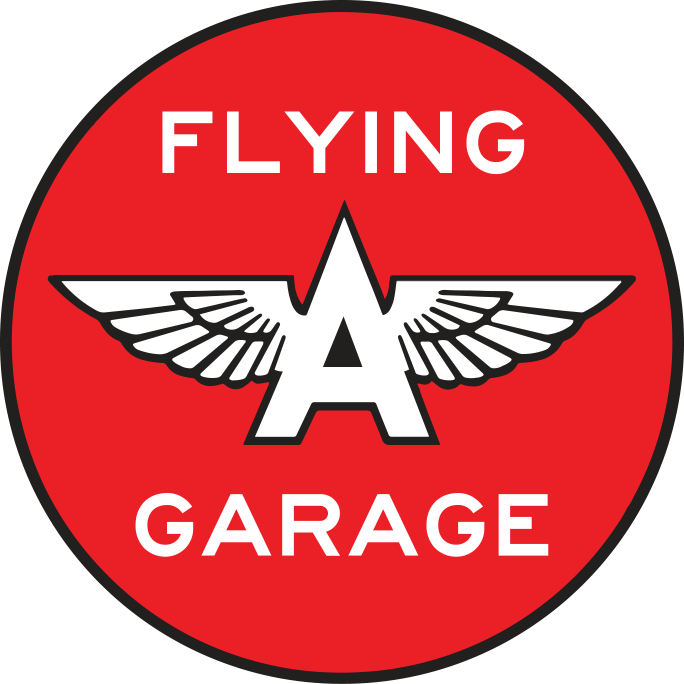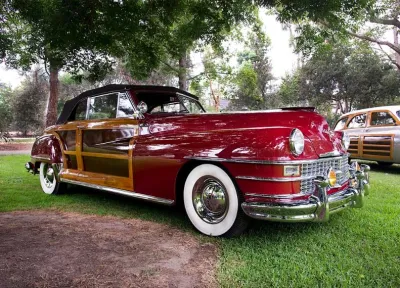Collection
No other car of the immediate post war touched the hearts of so many people as the 1946 Chrysler Town & Country. “It has,” said a Chrysler manual, “the grace and elegance of a yacht.” The steel front end looked “town” and the wood portion looked “country” so it was appropriately named the “Town & Country.”
Very little planning went into the development of the immediate post war 1946 Town & Country. Automobile production had ceased during World War II resulting in a dearth of new products for post war consumers. Most 1946 automobiles were continuums of their pre-war predecessors. The Town & Country was no exception. Chrysler had produced Town & Country station wagons between 1939 and 1942. Therefore, Chrysler seeking to freshen their post war product line simply took their New Yorker frame and chassis and built the Town & Country door, rear quarter and trunk panels from wood. The frame is made of oak and the veneer is made of mahogany plywood. The workmanship and time that when into the assembly of these automobiles truly defined reason. They were also more expensive to repair and equally perplexing to maintain. The notion of calling them land yachts was less of a compliment than it was a forewarning about the care these cars would demand from their owners. By 1950 it was apparent that wood was not the novelty it had been in 1945 and the line was discontinued.
The 1946 Town & Country convertible was built on a 127 inch wheel basis chassis. It sports a 135 horsepower 323 cu. In. Spitfire strait-eight cylinder, dual downdraft carburetor, Fluid Drive transmission, front independent coil springs with rear rigid axle and semi elliptical springs, four drum brakes.
Production of the 1946 convertible coupe was 1,935 units. According to The Town & Country Owner’s Registry only 33 remain today. Manufacturer’s Suggested Retail Price was $2,743.00, big bucks for a car at that time.

